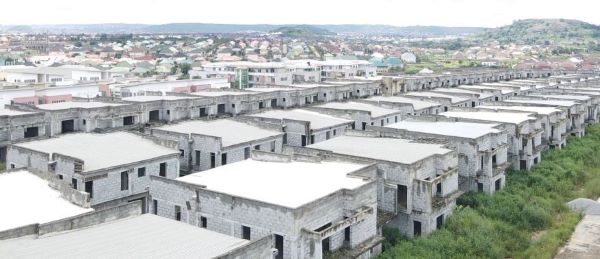On December 2, 2024, the Economic and Financial Crimes Commission (EFCC) in Nigeria successfully secured the forfeiture of 753 housing duplexes from a former top government official. This landmark event is a testament to the EFCC’s relentless efforts in the fight against corruption, a crucial mission for the country’s economic and political health. The seizure of these duplexes is a clear indication that the Nigerian government is taking proactive measures to reclaim assets illegally acquired through corrupt practices.
By Innocent Kure
However, while this action is commendable, there is a growing concern about what will happen to these properties once they are in the hands of the government. As has been the case with many properties seized in the past, there is a risk that they may remain vacant for years, deteriorating in condition and ultimately wasting valuable resources. The question that arises is: How can the government best utilize these assets to benefit Nigerians and ensure that they do not go to waste?
A missed opportunity for housing and employment
The government has often faced criticism for not making full use of seized properties, allowing them to fall into disrepair while Nigerians continue to struggle with housing shortages and unemployment. It would be a tragic irony if these 753 duplexes, which were taken from a corrupt official, ended up being abandoned, their potential left untapped.
Instead of letting these properties languish, there are numerous ways the government can quickly repurpose them for the benefit of its citizens. One such option is to utilize these houses for government staff, particularly in the Federal Capital Territory (FCT). The government can monetize these properties by offering them as affordable housing for staff of the Federal Capital Territory Administration (FCTA) or other essential services within the federal government. This would not only provide much-needed accommodation for workers but also ensure that the houses are well-maintained and occupied.
Proposing a staff quarters initiative
Another practical solution is to convert the seized duplexes into staff quarters for those who work at high-security government institutions like Aso Villa. Many government employees, including those working at critical locations such as the presidential villa, do not have guaranteed accommodation. Establishing permanent quarters for them would relieve pressure on the housing sector, ensuring that these workers have a secure, functional living environment. This initiative could act as a permanent residence for government personnel, and while not meant for general monetization, it would provide a long-term solution for staff housing.
A call for swift government action
The key to maximizing the value of these seized assets lies in the urgency with which the government takes action. Bureaucratic delays should not be allowed to hinder the swift utilization of these properties. The government can and should act quickly to repurpose these properties, either for staff housing or for other productive uses that align with national priorities. These efforts should be seen not just as a means to punish corruption, but as an opportunity to deliver tangible benefits to ordinary Nigerians.
Monetizing the properties for government employees can ease the lives of many, especially in a city like Abuja, where affordable housing is in short supply. The government’s commitment to fighting corruption should not only focus on punishing the wrongdoers but also on finding creative ways to ensure that forfeited assets are used in ways that contribute to the well-being of the public.
Let’s ensure that these assets don’t become another symbol of wasted opportunity. By taking immediate action, Nigeria can move closer to a future where corruption is truly tackled, and the resources that belong to the people are used to uplift their lives.
Nigeria shall be great again. Let’s get things right.
Kure is SSA Media and Publicity to former Niger State Governor


